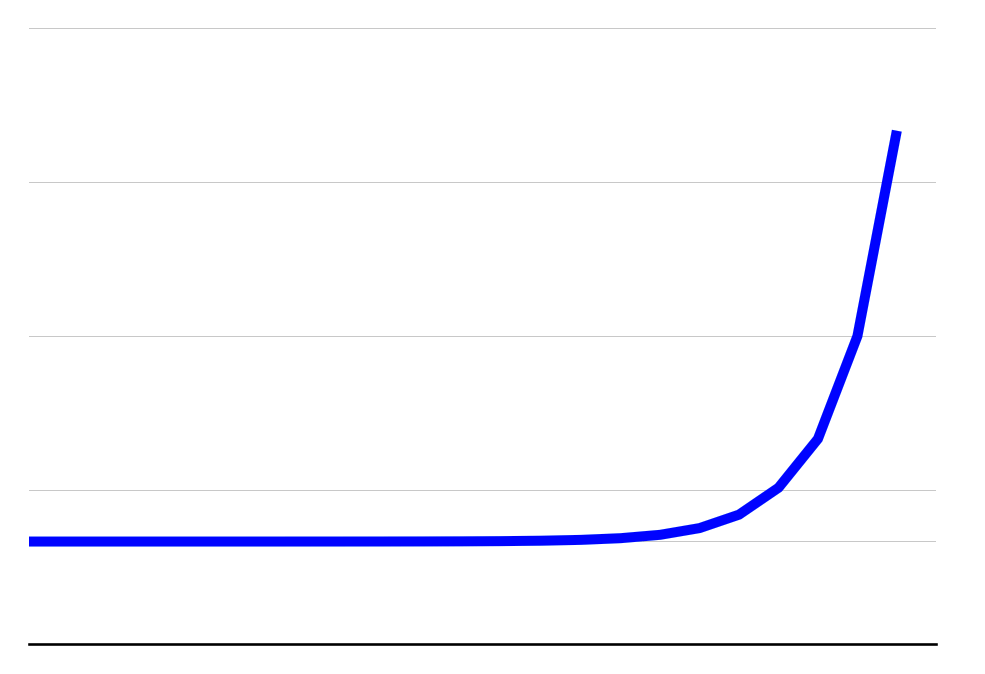The Rate Of Change Tends To Compound So Things Are About To Get Even More Nuts
It’s not like the changes we’ve seen in the past few decades are the result of humans collectively deciding, “okay, it’s time to start changing stuff.” No, progress is extremely slow at first but compounds as a society becomes more and more capable. It’s a pain in the ass to construct a building, but once you do it’s far easier to spend your days inside doing research and intellectual work which propel our capabilities along far faster.
“An analysis of the history of technology shows that technological change is exponential, contrary to the common-sense 'intuitive linear' view,” the author and futurist Ray Kurzweil wrote at the beginning of this century, “So we won't experience 100 years of progress in the 21st century—it will be more like 20,000 years of progress (at today's rate).”
100 years worth of progress back in the day probably meant discovering a few new berries that can kill you or getting slightly better at hunting a specific animal.
What does 100 years worth of progress look like when most humans on Earth are literate, have enough food to eat, live far longer, are given a basic education, have tools to communicate instantly with all humans across the planet, and have access to the collective tome of human knowledge?
We’re about to find out, and I bet it looks something like this:

Pictured: a graph of everything right now

